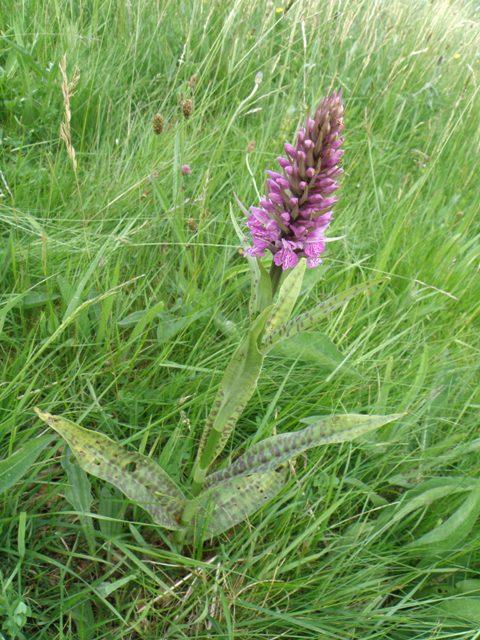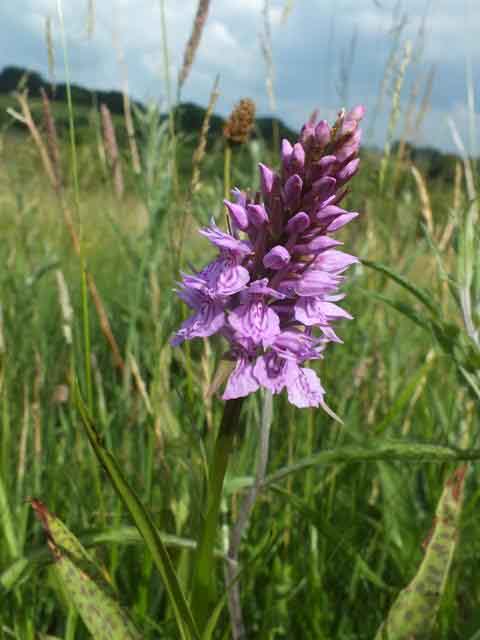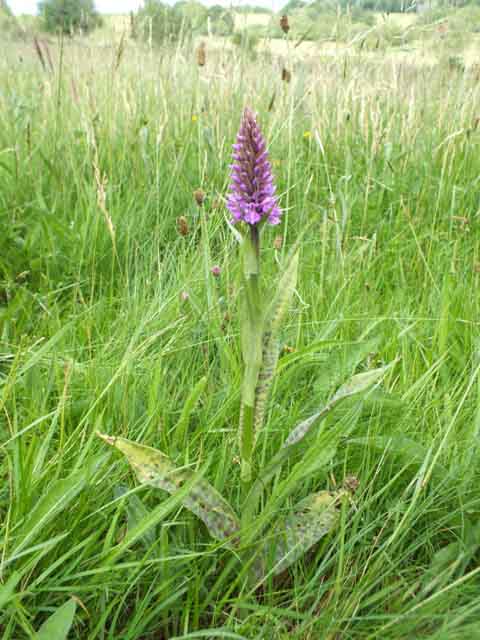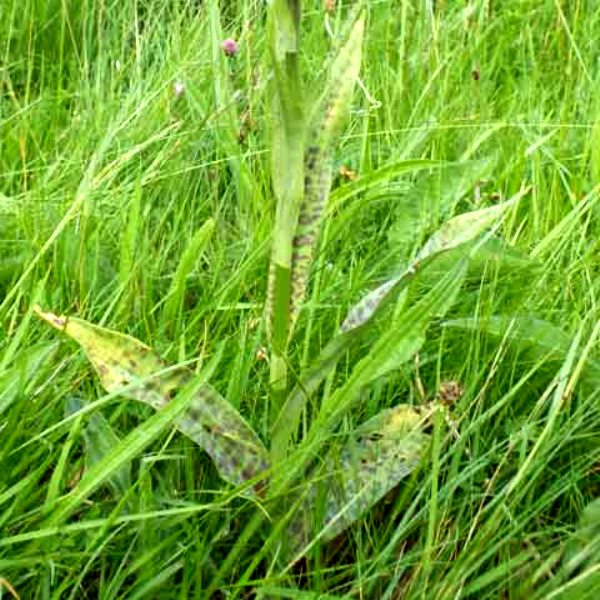Dactylorhiza fuchsii x Dactylorhiza praetermissa - Dactylorhiza x grandis
(Hybrid between Common Spotted-orchid and Southern Marsh-orchid)
Phylum: Magnoliophyta - Class: Liliopsida - Order: Orchidales - Family: Orchidaceae

Dactylorhiza x grandis, a hybrid between the Common Spotted-orchid Dactylorhiza fuchsii and the Southern Marsh-orchid Dactylorhiza praetermissa.
To find a recognisable orchid hybrid in the wild is exciting, but they are notoriously difficult to identify accurately because, even in relatively small groups of a single species, there can be considerable variation in the appearance of the flowers relating to shape, size, and most confusing of all, lip pattern and form.

One of the best demonstrations of the challenge of orchid identification is to pay a visit to the site of a large colony of Green-winged Orchids Anacamptis morio, such as the extensive colony that occurs in the grounds of Bristol Waterworks. There you can see literally hundreds of plants displaying the huge variation in colours that can occur within the same species.

A couple of basic 'rules' for recognising hybrids, but which are surprisingly difficult to apply in practice, are that the plant suspected of being a hybrid should show some of the the characteristics of both parents, and that both parents should grow in reasonably close proximity to the plant in question.
Of all the orchid species that grow in Britain, the spotted orchids (Dactylorhiza species) produce the most hybrids. The plants photographed on this page are hybrids between the Common Spotted-orchid and the Southern Marsh-orchid. Both parents were growing close by and very much in evidence.
The large size and vigour of a plant is another reasonably reliable indication that the orchid in question is a hybrid.

The specimens shown here were photographed in late spring at Cae Blaen Dyffryn, a grassland nature reserve near Lampeter in West Wales.
Etymology
The genus name Dactylorhiza means 'finger-like roots', while the hybrid epithet grandid means 'large' or 'spectacular'.
Reference sources
The Plant List
Sue Parker (2023) Wild Orchids of Wales - how, when and where to find them; First Nature e-book (Amazon Kindle format)
Anne and Simon Harrap (2005) Orchids of Britain and Ireland; A&C Black
Pierre Delforge (2005) Orchids of Europe, North Africa and the Middle East; A&C Black.
Please Help Us: If you have found this information interesting and useful, please consider helping to keep First Nature online by making a small donation towards the web hosting and internet costs.
Any donations over and above the essential running costs will help support the conservation work of Plantlife, the Rivers Trust and charitable botanic gardens - as do author royalties and publisher proceeds from books by Pat and Sue.


